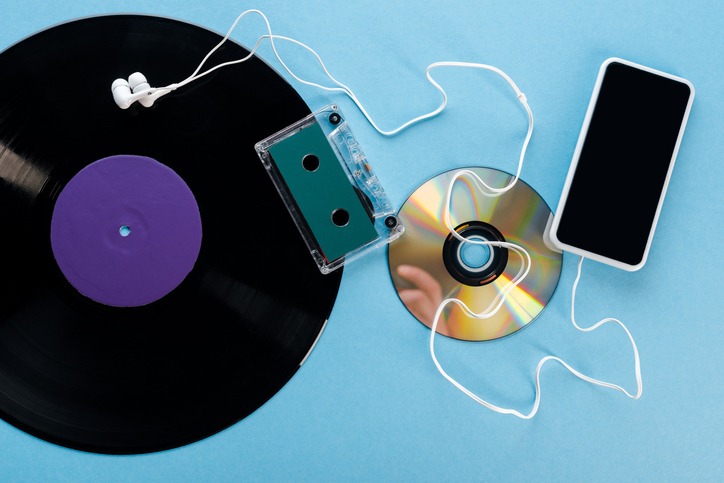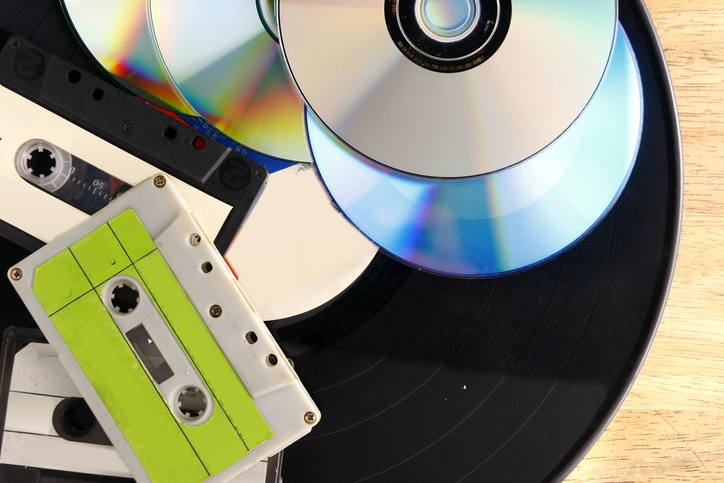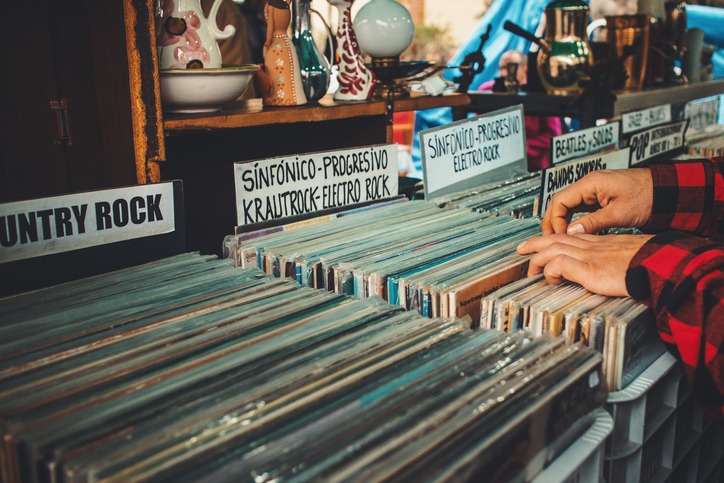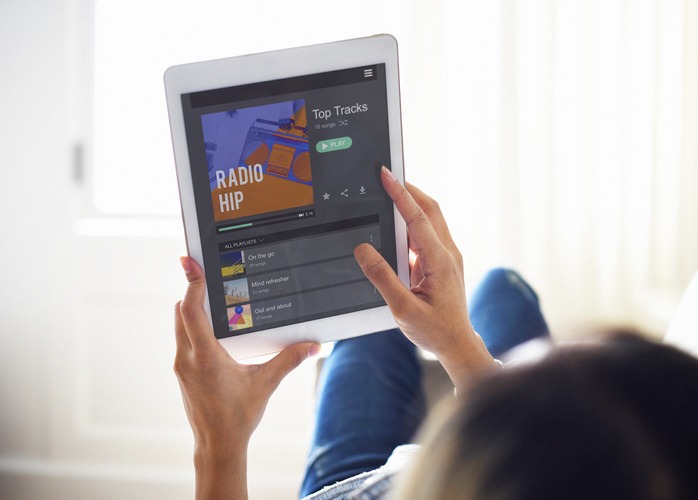Music distribution can be simply defined as making music available to consumers. It’s as old as the music industry itself. Even before the era of recording audio, there was sheet music – the only available medium at the time. Sheet music publishing companies needed someone to print out the scores and deliver them to stores. This was where the role of the distributors came – getting music into the stores.
But while the fundamental role of music distributors has remained the same for more than a century, their workflow and business have been prone to constant change. And those changes had a massive effect on the music industry in its entirety. From the vinyl era to the CD era to the present-day streaming era, we still use the dominant distribution medium to define the development of the music industry.
By the beginning of the 21st century, the recording industry was almost entirely physical. But only about two decades later, physical music sales make up less than one-fourth of all recording revenues around the world, with the share going down to 10% in terms of the more developed music markets. The rule is not without its exception – for instance, there’s the resurgence of popularity with vinyl records. CD sales still dominate the recorded music market in Japan. Nevertheless, there’s no question that the global music industry has welcomed and embraced the digital environment.
The music industry has transformed dramatically since the advent of the Internet. But the results have not always been so consistent for the artists.
Let’s look at how music distribution operated and how it began (and continues) its shift in the digital era. Aside from this, here is the link to the best online casino canada.
How Does Music Distribution Work?
1) Traditional
This method shows how records get into stores. A music distribution company signs a deal with the artist or record label, which gives them the right to sell that artist’s or label’s products to shops. The distributor can only sell to ships with an account with the distributor. To put it simply, the distributor acts as a middleman between the record label or artist and the store.
Throughout much of the 20th century, music distribution companies were the links between the artist or label and the retail outlets, which didn’t limit to conventional record shops and music stores. Other physicals store selling records included big-box retail outlets (like Walmart and Best Buy) and bookstores.
Distribution companies oversaw music recording, marketing, and promotion. Consumers bought vinyl records, cassette tapes, and CDs. It was usually the record labels who paid to have these products manufactured. To get the albums, cassette tapes, or CDs to fans, the labels signed deals with the distribution companies, who, in turn, signed deals with retail outlets to sell these records, cassette tapes, and CDs. Meanwhile, find out the best south african casino here.
The vinyl revival – The vinyl’s resurgence is happening. Releasing music on physical formats, such as vinyl, may not be for everyone. But there are some suggestions that releasing music on vinyl might be a good idea:
- Consider how many fans you have. You should have enough fans to cover your vinyl production costs if you’re going to sell 10% of your fanbase. If that’s so, releasing a limited-edition vinyl format might be a good idea.
- Launch an online poll and gather feedback from fans to indicate their interest in purchasing vinyl from you. Keep in mind the 10% of your fanbase, which is a good figure. If you want to press 100 vinyl records, for example, it’s best to get confirmed interest from your 1,000 fans.
- If you perform live a lot, then there’s a greater chance of successfully selling vinyl records to your live audience.
- Ask your fans if they’re the type of people who typically listen to vinyl and buy vinyl.
2) Digital
Digital music distribution works in the same vein as traditional, but on a different platform. Instead of bringing albums, cassette tapes, or CDs to physical stores, the distribution company distributes music in digital format, usually .mp3 or .wav. The music is sent to online music platforms like iTunes, Spotify, and Amazon Music. It is the distributor’s job to make sure that the royalties for the use of the music are allocated and go to the artists and rights owners.
Other distributors accept everyone who wants to sell their music through their own websites. Some also sell via their own websites but are rather picky with who they will allow to sell it. After accepting musicians and labels, distributing companies then distribute music to download, streaming, radio, and mobile platforms in several locations across the globe.
With the increasing number of consumers paying to download music legally from iTunes and Amazon Music, the sales of physical music formats like CDs and cassette tapes have plummeted. The music industry has lost billions of dollars. Since 2015, subscription services like Spotify have helped the music industry bounce back and start to create a new model for music industry distribution and revenue.
The trend has also led to the increasing closure of distribution companies. Only a few of them are affiliated with the major record labels. Even though hundreds of independent record labels exist, Universal Music, Sony Music Entertainment, and Warner Music own the largest distribution companies. Whether you download your music from Amazon or stream it from Spotify, one of these major labels is likely responsible for making it possible.
In 2020, global revenues for recorded music reached US$21.6 billion. Growth was driven by streaming, particularly by paid subscription streaming revenues, which rose by 18.5%. There were around 445 million subscribers of paid accounts at the end of the year.
The strong revenues make it clear that digital is the way to go. It’s the perfect start to build an audience and etch a name in the music industry.
One of the advantages of having digital distributors – at least many of them – is that they don’t have exclusivity deals, which means you don’t give up the rights to your music. And that’s a big thing. Because if your next release will be better handled and represented by another distributor, you’re free to end your non-exclusive deal with your current distributor anytime.




